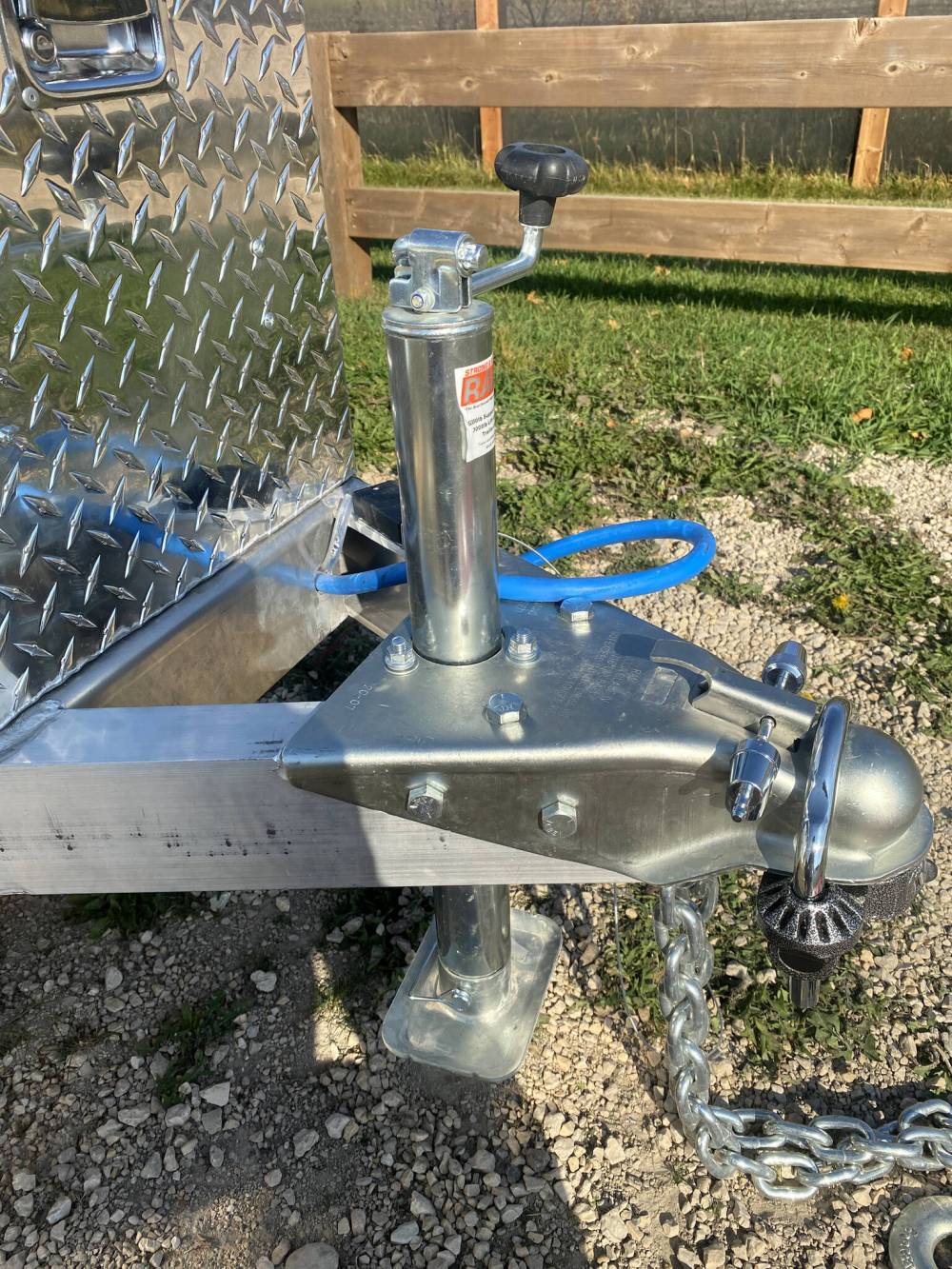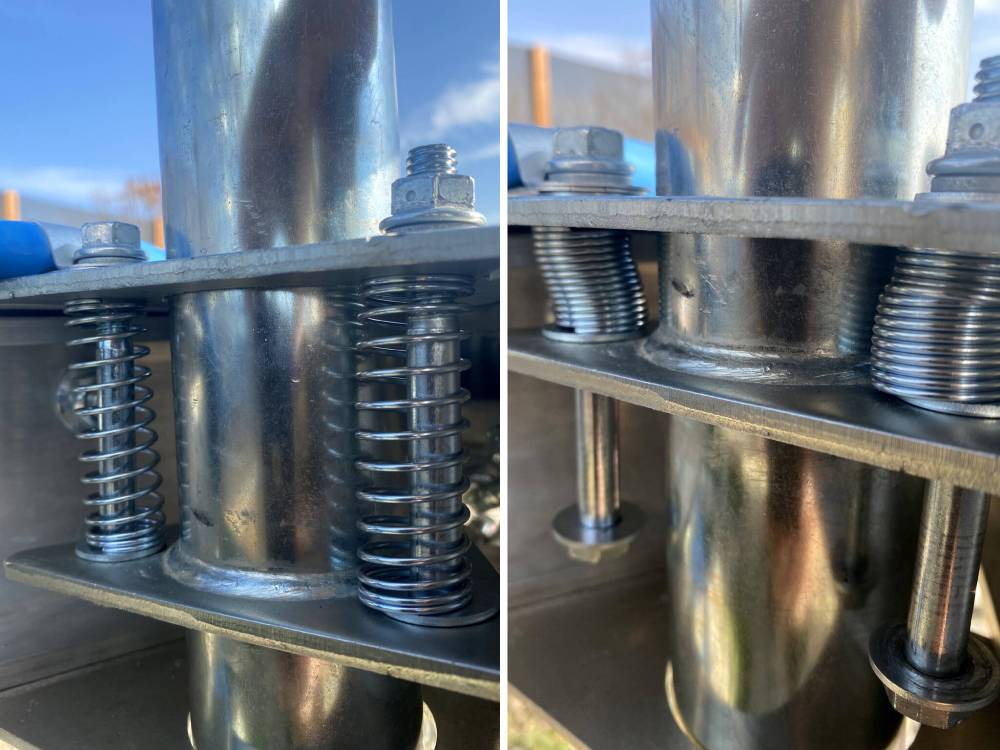Don’t let your trailer be a drag
This easy improvement will put a little spring into your towing
Advertisement
Read this article for free:
or
Already have an account? Log in here »
To continue reading, please subscribe:
Monthly Digital Subscription
$0 for the first 4 weeks*
- Enjoy unlimited reading on winnipegfreepress.com
- Read the E-Edition, our digital replica newspaper
- Access News Break, our award-winning app
- Play interactive puzzles
*No charge for 4 weeks then price increases to the regular rate of $19.00 plus GST every four weeks. Offer available to new and qualified returning subscribers only. Cancel any time.
Monthly Digital Subscription
$4.75/week*
- Enjoy unlimited reading on winnipegfreepress.com
- Read the E-Edition, our digital replica newspaper
- Access News Break, our award-winning app
- Play interactive puzzles
*Billed as $19 plus GST every four weeks. Cancel any time.
To continue reading, please subscribe:
Add Free Press access to your Brandon Sun subscription for only an additional
$1 for the first 4 weeks*
*Your next subscription payment will increase by $1.00 and you will be charged $16.99 plus GST for four weeks. After four weeks, your payment will increase to $23.99 plus GST every four weeks.
Read unlimited articles for free today:
or
Already have an account? Log in here »
Shortly after I purchased my aluminum flatbed trailer a few years back, a few immediate modifications greatly improved its functionality. The spare tire, which had been mounted on the front side of the flatbed box near the tongue, was relocated along one of the back sides, providing enough room for a tongue chest. Still, one lingering issue remained — until I came up with a clever solution the following week.
The tandem-axle, 16-foot flatbed trailer is designed with a 16-inch-high perimeter wall and a folding ramp at the back for easy loading. The added tongue chest provides storage space which comes in handy for hitch locks, locking cotter pins and an assortment of heavy-duty tow-straps and winch straps.
The trailer also has a retractable tongue stand mounted in the centre near the hitch, which is preferable to side-mount stands that are usually along one side further from the hitch. There is, however, a drawback to the centre stand: when the trailer is hitched to the truck and the stand is retracted, the height of the stand’s lever exceeds the elevation of the truck’s lowered tailgate. As such, there was always a possibility of damaging the truck’s tailgate if I lowered it with the trailer still hitched to the truck.

PHOTOS BY Marc LaBossiere / Free Press
A centred retractable tongue stand is preferable to side-mount versions.
This bothered me greatly, because I could envision scenarios where I’d need access to the truck box without having unhitched the trailer. After taking a few measurements, the elevation discrepancy proved to be just shy of two inches. How could the trailer stand mechanism be modified to prevent tailgate damage?
I entertained the possibility of replacing the stand’s pad with something else, but the mechanics of the stand’s retractable sleeve prevented any alteration to its height. So, I decided to evaluate the stand mount. There were three bolts secured to an aluminum plate welded to the trailer. After careful contemplation, a potential solution began to emerge. With longer bolts, and a gap between the trailer’s plate and the stand mounts, the topside lever could be lowered when the stand was not in operation.
Here’s what I decided to do. First, I removed the stand. Three long bolts with smooth shafts and threads on the ends were needed to replace the existing short bolts. They would then be fed upwards through the holes on the stand plate, with washers placed along the top of the stand mount. Compression springs were introduced onto each bolt before the bolt ends were fed up through the holes on the trailer’s mounting plate. Once through, lock nuts were fastened to the threads of each bolt along the topside of the trailer mounting plate. Once they were in place, and after a few adjustments, the mechanics of the modification were tested.
Now when the trailer is hitched to the truck and the stand is not in operation, the springs remain fully extended, allowing the lever handle to remain below a height that could dent the tailgate if it was lowered. When the stand is in use, the springs compress until the weight of the trailer is supported by the stand.
This slight improvement has proven invaluable on job sites, and works like a charm. Although the compression springs along the stand mount lower the entire stand mechanism by two inches or so, the clearance of the stand pad is still acceptable, allowing you to avoid road idiosyncrasies and bumps.

Adding springs to the trailer stand keeps the lever from potentially damaging an open tailgate, and the springs compress when the stand is in use.
This slight alteration to the trailer has improved its overall functionality and efficiency. Often on certain job sites, it’s essential to leave the tailgate open while the trailer is still hitched, especially if you need ready access to tools and materials in the truck box.
And, if I’m being honest, it sure was fun having an excuse to tinker with my new trailer on a nice sunny afternoon.


